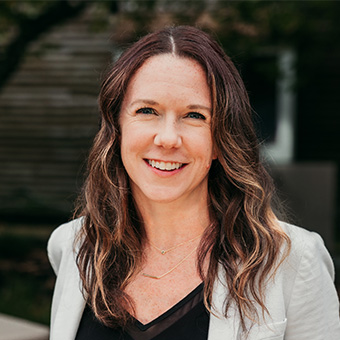
Paid search tactics such as Google Ads, also commonly referred to as pay-per-click or PPC advertising, are a hugely important piece of any integrated B2B marketing strategy. While PPC does require some spend from your company’s budget, it offers the benefits of specific targeting, scalability (ramp it up or down as often or as tightly you want), and a chance to engage with leads while directly proving measurable ROI for your efforts in a way that can’t be done for more traditional marketing tactics.
What Is PPC Advertising?
PPC refers to a digital advertising model where companies pay for each click an ad generates. PPC advertising is used heavily on search engines, with Google being the most popular (but not the only – for example, Bing also offers PPC advertising), to foster engagement. The purpose is typically to drive web traffic to a specific webpage or landing page in order to generate leads, boost sales or increase brand awareness.
Examples of PPC include:
- Banner ads on display networks or third-party sites
- Text-based search ads that pop up in a Google search
- Retargeting/remarketing of ads based on previous search activity
PPC campaigns are usually set up to target specific keywords or search terms, based on what your audience is searching for, the content on the webpage you’re promoting and the desired action you want visitors to take once they’ve reached your site. Each PPC campaign has its own monthly budget that can be adjusted at any time. Platforms like Google Ads will distribute the ads according to custom campaign settings and chosen bid strategies, and charge each time a viewer clicks on an ad, until the budget is used up.
Using Google Ads for B2B Marketing
Google Ads typically work well for B2C (business-to-consumer) marketing campaigns for a few reasons. For one, the price points for B2C products are often lower, and the volumes of product for sale are usually much higher (for example, shoes). B2C also tends to have the benefit of a shorter sales cycle and a single decision maker – or, at most, a couple or a family – and all of this is particularly helpful for e-commerce.
While the same benefits aren’t exactly true for B2B (business-to-business), it’s important to note one major similarity between B2B buyers and B2C buyers: they’re all people. Businesses don’t buy products or services; people who work at those businesses do. And PPC is a great way to reach and influence people in the B2B space as well, which is why it is commonly in our marketing toolbox for our B2B clients.
While the B2B buyers’ journey is longer than B2C (typically 84 days on average – and it’s not rare for this to stretch into many months), this also means that B2B buyers need multiple touch points along their journey to result in opportunities and sales. And almost always, there’s more than one person making the buying decisions, and all of those influencers need to be convinced of your value. A successful PPC campaign can help B2B companies reach the right people, and serve them relevant content at every stage of the buyers’ journey to generate sales.
Building Relationships with Google Ads
In the B2B world, companies traditionally relied on personal relationships, one-to-one connections and referrals to build their business. Digital marketing, and PPC in particular, might seem to be the exact opposite of that, but it’s actually an important piece of the foundation for those relationships to form and nurture.
The traditional offline methods for sales take up a lot of time and money, like cold calling business contacts or attending networking events and trade shows with the hope of a successful meeting. While there is certainly still a need for those methods, PPC campaigns can help supplement them, by reaching people around the clock with a simple ad that’s targeted to what they need at the exact moment they’re searching for it.
It’s not about trying to navigate the buyers’ journey without personal relationships; it’s about reaching new people and creating new relationships through digital marketing. A PPC campaign with a solid strategy and meaningful targeting is the first step in developing those relationships, and should be used as a valuable lead generation solution, not just an ecommerce conversion tactic.
Making the Most of Your Google Ads Budget
To optimize your marketing budget and gain tangible results from your spend, you need to think about investing in pay-per-click advertising. Businesses make, on average, $2 of revenue for every $1 spent in Google Ads, and trends show that B2B ecommerce sales will actually outpace B2C ecommerce sales in the coming year. As long as you’re reaching the people you need with targeted ads that speak to them, the ROI from PPC will justify the cost of your campaigns.
To achieve this, you need to create strategic PPC campaigns that position you to take advantage of trends and enable sales growth. Here are some tips for running a PPC campaign so you can get the most out of your budget:
- Research before you start: Before you actually launch your campaign, you can research your target audiences, keywords and competition to calculate the ideal budget and figure out who and what search terms you need to target with your ads. This will help you optimize your spend for both your company’s size and strategic marketing goals.
- Adjust in real time: One huge benefit of PPC is that you can make adjustments in real time to your ad copy, landing page copy, bidding strategy and pretty much any other aspect of your campaign. Monitor your campaigns as they’re running and optimize these components to increase performance. This might mean pausing or even stopping campaigns that aren’t performing well, and redirecting your spend elsewhere.
- Track your ROI: To prove success, make sure you’re carefully monitoring ROI from your PPC campaigns. Budgets can be set based on the expected ROI of a campaign, and can be adjusted based on your needs and resources. By monitoring your ROI from your PPC budget, you can better inform those decisions.
You may already be investing in Google Ads, which is great. You’ll want to keep tracking your success and ensure that your PPC campaigns align with your larger digital marketing goals. And, if you’re already getting results from your current PPC efforts, ask yourself: are there other opportunities where you can increase your PPC campaign performance and optimize further?
Measure where you’re at with your digital marketing, including PPC advertising, with our quick digital marketing analysis. Have a question about getting started with PPC? Contact me today.

